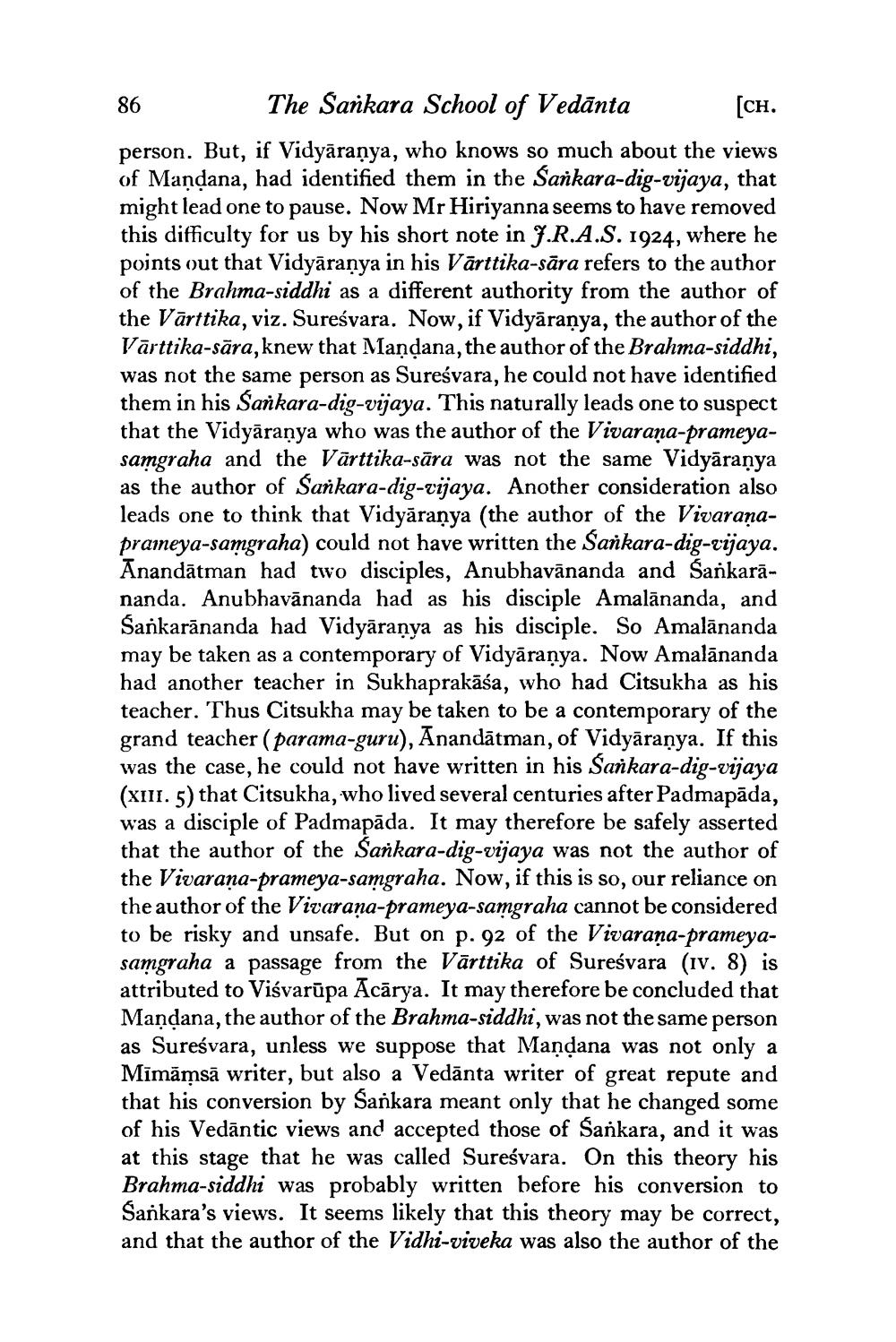________________
The Sankara School of Vedanta
[CH.
person. But, if Vidyaranya, who knows so much about the views of Mandana, had identified them in the Sankara-dig-vijaya, that might lead one to pause. Now Mr Hiriyanna seems to have removed this difficulty for us by his short note in J.R.A.S. 1924, where he points out that Vidyāraṇya in his Vārttika-sāra refers to the author of the Brahma-siddhi as a different authority from the author of the Varttika, viz. Sureśvara. Now, if Vidyaranya, the author of the Varttika-sāra, knew that Mandana, the author of the Brahma-siddhi, was not the same person as Sureśvara, he could not have identified them in his Sankara-dig-vijaya. This naturally leads one to suspect that the Vidyaranya who was the author of the Vivarana-prameyasamgraha and the Varttika-sāra was not the same Vidyaranya as the author of Sankara-dig-vijaya. Another consideration also leads one to think that Vidyaraṇya (the author of the Vivaranaprameya-samgraha) could not have written the Sankara-dig-vijaya. Anandatman had two disciples, Anubhavānanda and Śankarānanda. Anubhavananda had as his disciple Amalānanda, and Sankarananda had Vidyaranya as his disciple. So Amalānanda may be taken as a contemporary of Vidyaranya. Now Amalananda had another teacher in Sukhaprakāśa, who had Citsukha as his teacher. Thus Citsukha may be taken to be a contemporary of the grand teacher (parama-guru), Anandātman, of Vidyaraṇya. If this was the case, he could not have written in his Sankara-dig-vijaya (XIII. 5) that Citsukha, who lived several centuries after Padmapāda, was a disciple of Padmapada. It may therefore be safely asserted that the author of the Sankara-dig-vijaya was not the author of the Vivarana-prameya-samgraha. Now, if this is so, our reliance on the author of the Vivarana-prameya-samgraha cannot be considered to be risky and unsafe. But on p. 92 of the Vivarana-prameyasamgraha a passage from the Varttika of Sureśvara (Iv. 8) is attributed to Viśvarūpa Acārya. It may therefore be concluded that Mandana, the author of the Brahma-siddhi, was not the same person as Sureśvara, unless we suppose that Mandana was not only a Mīmāmsā writer, but also a Vedanta writer of great repute and that his conversion by Sankara meant only that he changed some of his Vedantic views and accepted those of Sankara, and it was at this stage that he was called Sureśvara. On this theory his Brahma-siddhi was probably written before his conversion to Sankara's views. It seems likely that this theory may be correct, and that the author of the Vidhi-viveka was also the author of the
86




